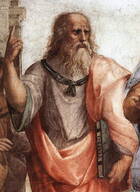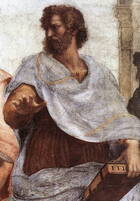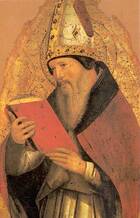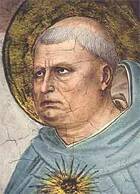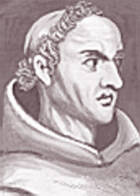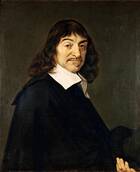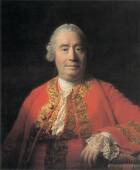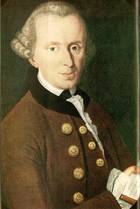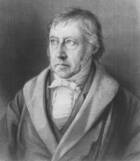
Philosophy and Faith
An introductory series of 12 talks on philosophers from Plato and Aristotle to Descartes and Sartre, given by Rev. Dr Francis John Selman MA, MagTheol, PhL, PhD, lecturer in philosophy at Oscott Seminary in England (previously at Allen Hall in London).
Episodes under 10 minutes long. You can subscribe to this Totus2us podcast here on itunes or here on the RSS feed. To download the free mp3 audio recordings individually, right/double click on the blue play buttons.
Introduction 
Plato 
"The dawn of philosophy, as we know it in the West, occurred in ancient Greece around the year 600 BC with Thales, one of the 7 Wise Men of Greece. But only fragments of the earliest philosophers have come down to us in the writings of others. The first philosopher from whom we have complete works is Plato, who lived from 427-347 BC and was a discple of Socrates.
.. Plato helps us to raise our minds above the material world to a higher world and so to spiritual realities.. Plato regarded the philosopher as a lover of truth, only he sought knowledge of truth in another world than this one."
Aristotle 
"A notable feature of Aristotle's natural science, which distinguishes him sharply from many of our contemporaries, is that he thought that things in nature have an end. The end of a plant or animal, for example, is to reach its perfect development. It is difficult to deny that many things in nature serve a purpose or end: Aristotle gives the example of leaves, to provide shade. To say that things have an end is quite contrary to thinking that the world has just come about by chance. He also thought that we have an end. The end of human beings, he says, is to act well, just as the end of a harpist is to play the harp well. In Aristotle's view, we act well when we act according to our nature, not contrary to it. Thus for us to act well is to act according to reason, because we have rational nature. To act according to reason is what we mean by virtue. He discusses the virtues, especially justice, courage, prudence and temperance, in his book the Nicomachean Ethics. He begins this book by observing that we almost always act for an end: I clean my teeth to keep my teeth healthy, I put on a pullover to keep warm, I take a bus to go to the chemist, and so on. But he also asks whether there is some end to which all our actions and other ends are directed. And he thinks there is: it is happiness. No one desires to be unhappy. Happiness took two forms for Aristotle: the first is to flourish by taking a full part in the life of the city state, especially by the practice of the social virtues. But in Book 10 of the Ethics, he says that activity makes us most happy which is most like God's activity. This is contemplation. The connection between the two is that the life of virtue disposes us for contemplation."
Saint Augustine 
"Memory was like a great treasure house in Augustine's view. One of the things we find in memory is ourselves - this is to be conscious of ourselves, when we do not forget ourselves. Thus memory came to have a second meaning in St Augustine: of self-consciousness. When I am conscious of things outside me, they are present to me, but when I am conscious of myself I am present to myself. Nothing is more present to the mind, St Augustine remarked, than the mind itself. Thus the mind knows itself. What did Augustine think that the mind knows about itself? That it is not material like the body, but immaterial. Here, I think Augustine gives 2 good reasons which retain all their relevance for today. First, as the mind knows it is distinct from the material things it thinks about, if it were air or fire .. it would think of air or fire in another way than it does about other matter, and so not with an imaginary fantasy. But we do not think of air or fire in another way, so the mind does not consist of anything material, it is immaterial. Second, the mind does not have parts like a body, it is not extended like material bodies. .. The mind consists of memory, understanding and will, but these are not 3 parts of the mind. The mind is all 3 of these indivisibly. Thus St Augustine could use the mind as an analogy for the Holy Trinity. .. The connection between the understanding and memory is the will. The will directs the mind to the memory, where images are stored, and also directs the attention of the mind to its objects of thought. We don't look outside ourselves to the ideas and forms as Plato did, but turn inwards to the memory."
Saint Thomas Aquinas 
"Aquinas said 'Human beings exist on the border, in confinio, between the material and immaterial.' Thus we are a kind of microcosm of the whole world as we alone combine the material and the immaterial. We are made to get our knowledge through the senses of the body, but we can also think of things not just as they exist in matter, which is as particular or individual things, but also generally. It is not clear what Aristotle thought of about the immortality of the soul. This presented a difficulty for him since it seems that if the soul is a form of the body, it cannot exist on its own separately, but must perish with the body. However Aquinas showed that as the mind is immaterial, it has an activity, thinking, which is not a part of the body. So the soul can exist on its own because it is in some way independent of the body. In Aquinas's view, we reach our end by our actions. We only reach our proper end when our actions are directed to our end. These are virtuous actions in accord with right reason. But our end is not so much happiness but beatitude. We can only reach this by actions helped by grace, which we receive through Jesus Christ who, as He is God and man, is our way of returning to God, our end."
William Ockham 
"William Ockham, who was born around the year 1285 and died in 1348, came from the village of that name, Ockham, in Surrey, England. He became a Franciscan friar and was associated with Merton College, Oxford, where scholars can still inspect early manuscripts of his works in the old library. It is useful to know something about Ockham’s philosophy because several of his positions were taken up in modern philosophy with far reaching consequences, especially his nominalism and voluntarism, which I shall explain in due course. Ockham thus provides the bridge between medieval and modern philosophy.
Ockham is especially known for “Ockham’s Razor”. This razor was his resolve to eliminate as many abstract terms from philosophy as possible, expressed in his dictum: “It is vain to do with many what can be done with a few (terms)”. In particular, he wanted to abolish the distinction between the essence and existence of a thing..."
René Descartes 
"In conclusion, we can ask whether Descartes' thought 'I think therefore I am' proved as much as he thought. Descartes' thought that his doubt about the existence of the world came to an end with the certainty of his own existence. But other people have thought that it proved no more than that he existed, that it led into solipsism, the view that I am the only person who exists because I am only conscious of myself. Descartes forgot that he could not have had this thought without his body, because he had conceived it with words which he had learnt from other people by hearing with his ears what they uttered with their mouths. As a student once observed to me, if the world did not exist, Descartes could not have existed. Perhaps it is not so clear that we can think the world is an illusion, and our senses are more liable than Descartes allowed."
The British Empiricists 
Locke, Berkeley & Hume
"While rationalism, the doctrine that knowledge is derived from the ideas of the mind, flourished on the European Continent from Descartes to Kant and Hegel, the British Isles produced their own brand of philosophy, known as empiricism, which comes from the Greek word for experience, empeiria. Empiricism is the doctrine that our ideas are derived from the experience of the senses. This is not to be equated with materialism. In this talk, I shall take the three chief British empiricists together: John Locke, George Berkeley and David Hume."
Immanuel Kant 
The first substance I know about is myself. In order to have experience at all the subject which perceives many impressions, has thoughts and memories, must possess identity and continuity, and so be a substance. There is no unity of experience without a permanent subject of my experiences, thoughts and memories. My present and future thoughts and actions can only be explained by my past thoughts and actions if I am a permanent subject. But what sort of substance am I? Am I a body, a soul, or a self? Kant preferred to talk about my “I”, but this “I” is an immaterial substance, because it is not known by the senses but by reflection. Thus the starting-point of Kant’s philosophy is subjective: it is my “I”, not the world around me, because with every thought and perception I have goes the thought “I am thinking, perceiving this”. But as my body is part of the material world and my “I” is an immaterial substance, Kant perpetuated the dualism of Descartes. This led Kant into a dilemma, which he expressed in his Third Antinomy: How can my actions be free when they are performed by my body that is part of the natural world which Kant, in accordance with the prevailing scientific view of the 18th century, thought to be determined. On the other hand, “I” am the originator of my actions and my “I” is not part of the world bound by the laws of nature as it is an immaterial substance. It was a false dilemma because I am bound by the laws of chess how I can move a piece, say a knight, but I freely choose the way I move it each time within the rules. Unless our actions are in part limited by the laws of nature, I could not direct my actions at a goal, say direct an arrow to a target. There is no incompatibility between laws of nature and freedom.
Georg Wilhelm Friedrich Hegel 
Georg Wilhelm Friedrich Hegel, the last of the German idealists, was born in 1770 and died in Berlin, where he had been professor of philosophy for 13 years, in 1831. He produced his Phenomenology of Spirit when a lecturer in Jena in 1803. We find his political theory in The Philosophy of Right, published in 1821. His philosophy represents the attempt to fit all branches of knowledge into a unified system, which can be summarised in one sentence: absolute Spirit objectifies itself in the world and through the world comes to complete self-consciousness. Let us see how this happens according to Hegel.
